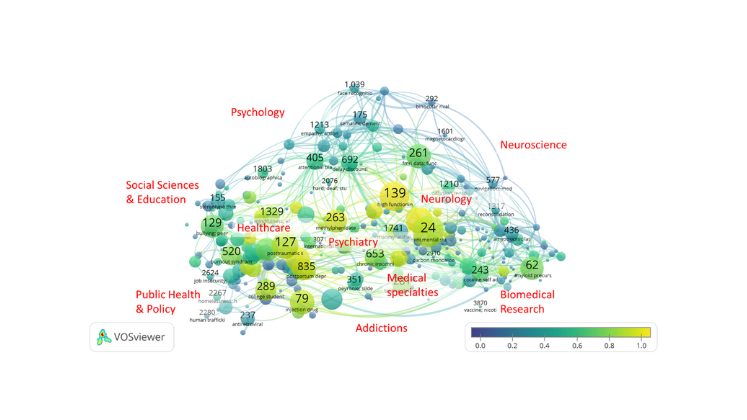In The Perfection Trap: The Power Of Good Enough In A World That Always Wants More, Thomas Curran examines the reasons for a rise in socially prescribed perfectionism and its negative mental health effects on individuals. Combining extensive research with his own experience of perfectionism, Curran makes a convincing case for why we should resist the contemporary pressure to be perfect, writes Marianne E. Etherson.
This blogpost originally appeared on LSE Review of Books. If you would like to contribute to the series, please contact the managing editor at lsereviewofbooks@lse.ac.uk.
The Perfection Trap: The Power Of Good Enough In A World That Always Wants More. Thomas Curran. Penguin. 2023.
 In The Perfection Trap, Thomas Curran brings together his academic expertise and lived experience to delve deep into perfectionism and the costs of living in a society where the pressures to reach perfection are more pervasive than ever.
In The Perfection Trap, Thomas Curran brings together his academic expertise and lived experience to delve deep into perfectionism and the costs of living in a society where the pressures to reach perfection are more pervasive than ever.
Curran takes us on a journey to better understand the nature of perfectionism, how it affects us, where it comes from, and why it is on the rise. On this journey, Curran reflects upon early theoretical writings, meets with prominent scholars, most notably professors Paul Hewitt and Gordon Flett, details key pieces of research and provides some compelling case studies. Plagued by his own perfectionism, Curran knows too well the harmfulness of the trait and gives us insight into his own personal struggles.
In Curran’s view, society doesn’t view perfectionism as a problem and instead considers it “our favourite flaw” (17). The book is important in helping readers to recognise that perfectionism is not, in fact, something to be desired, celebrated or endorsed. Drawing upon extensive research, Curran details the destructive nature of perfectionism, particularly socially prescribed perfectionism, and its link with various mental health problems, including anxiety, depression, eating disorder symptoms, self-harm and suicidal ideation.
In Curran’s view, society doesn’t view perfectionism as a problem and instead considers it “our favourite flaw”
Based on his research with Professor Andrew Hill, Curran states that levels of perfectionism over the past 30 years and, in particular socially prescribed perfectionism, are rising at an exponential rate among college students in the UK, US and Canada. And while we know perfectionism largely develops from genetics and our early life experiences, Curran highlights that this doesn’t necessarily explain why levels of perfectionism are rising. Rather, Curran argues “the culprit is culture”.
The main premise of the book is to underscore the role that modern culture plays in rising levels of perfectionism. While socially prescribed perfectionism can involve the perception that society more generally imposes unrealistic expectations, so far, the role of society and culture has been largely overlooked in the literature. In this regard, the book broadens our understanding and our way of thinking about perfectionism. While more research is needed in this area, Curran makes a convincing case for the role of both the economy and culture in creating an environment that amplifies perfectionism.
One reason for this that is explored in the book is the widely peddled idea that we live in a meritocracy – the belief that we can achieve upward social mobility through our own merits, rather than through wealth or social status. Thus, failure to succeed is figured as personal rather than a result of an unequal societal structure. Today’s younger generation, Curran argues, faces enormous pressure to demonstrate their worth in a culture fixated on more, bigger, and better. These meritocratic pressures affect everyone, perhaps more so the well-off. Indeed, the middle and upper classes make up the vast majority of college intake. But, Curran explains, it doesn’t mean the poorer aren’t affected; they have higher to climb up the social ladder and have more obstacles to overcome (168-169).
Curran makes a convincing case for the role of both the economy and culture in creating an environment that amplifies perfectionism.
The book argues that social media (particularly visual platforms, such as Instagram and TikTok) and advertising are two main culprits breeding insecurity and discontent among us. With highlight reels, unattainable beauty ideals and filters, creating “pixelated perfection,” it’s understandable why those of us scrolling compare ourselves negatively to others and become discontented with ourselves and our lives (132-134). Working on a deficit model and fraught with ads, Curran states, we are offered the “perfect” remedy to fix our so-called imperfections. And only when we make the necessary purchases will we feel enough.
Curran isn’t afraid to blame advertising companies who are well aware that discontented consumers are more profitable (117); hence the trade-off of this economic growth is our health and happiness. And while many of us continually try to perfect ourselves with the latest fashion trends, beauty products or gym regimes, Curran argues that “it’s society that’s broken, not us” (248).
The book highlights that societal change is needed to counter the rise of perfectionism. But, while many people may want, and advocate for, change, it will no doubt take time to work towards this as a society. Ultimately, it will require policy changes and huge collective action, such as stricter regulations for advertising and social media platforms, fewer mandatory tests in schools and colleges alongside a greater focus on development and learning, and the creation of a more level playing field through policies such as basic income (244). But, for now, Curran suggests, we must “meet the world where it is” and accept what we can’t control (211).
The book highlights that societal change is needed to counter the rise of perfectionism.
In the chapter, “Accept yourself”, Curran offers some practical and realistic advice for those struggling with perfectionism. Though he admits this won’t necessarily be easy with the forces of today’s culture working against us. The first step is understanding perfectionism and recognising that our need for perfection is largely conditioned by our culture. Acceptance involves not only accepting ourselves, but accepting we are not responsible for the culture we live in, especially the young who have inherited it from previous generations. That said, while the economy and society will continue to feed on our insecurities, he urges us to take a stand against it.
The Perfection Trap is informative, convincing and timely. Reading this book will help you understand the destructiveness of perfectionism and will teach you how to accept your imperfect self in a culture that preys on your imperfections.
Readers can watch back a panel event about perfectionism featuring Thomas Curran, “The Power of Good Enough”, held during LSE Festival in June 2023.
The content generated on this blog is for information purposes only. This Article gives the views and opinions of the authors and does not reflect the views and opinions of the Impact of Social Science blog (the blog), nor of the London School of Economics and Political Science. Please review our comments policy if you have any concerns on posting a comment below.
Image Credit: TA design on Shutterstock.







